CAG, in collaboration with Solar Advisory Unit - Salem, organised a stakeholder meeting on the adoption of rooftop solar energy under the PM Surya Ghar Yojana. The event was held on 22nd September 2025 at Hotel Kasi’s Inn, Salem. The main objective of the meeting was to raise awareness among consumers about solar energy, including subsidy schemes, loan options, and the procedures for installation. The meeting had participants from solar developers, financial institutions, Tamil Nadu Power Distribution Company Limited officials, and media representatives.
Mr. J.M. Boopathi, Coordinator, Solar Advisor Unit - Salem, welcomed all participants to the event. He highlighted the significant role of solar power in today’s energy landscape and its status as one of the most sustainable and reliable sources of renewable energy. Mr. Boopathi discussed its decreasing costs and the technological advancements that have made solar solutions increasingly accessible for both residential and commercial use. He encouraged participants to explore the various opportunities that solar energy presents, not only for reducing energy costs but also for contributing to a greener future.

Mr.J.M.Boopathi, Coordinator, Solar Advisor Unit - Salem, during the meeting
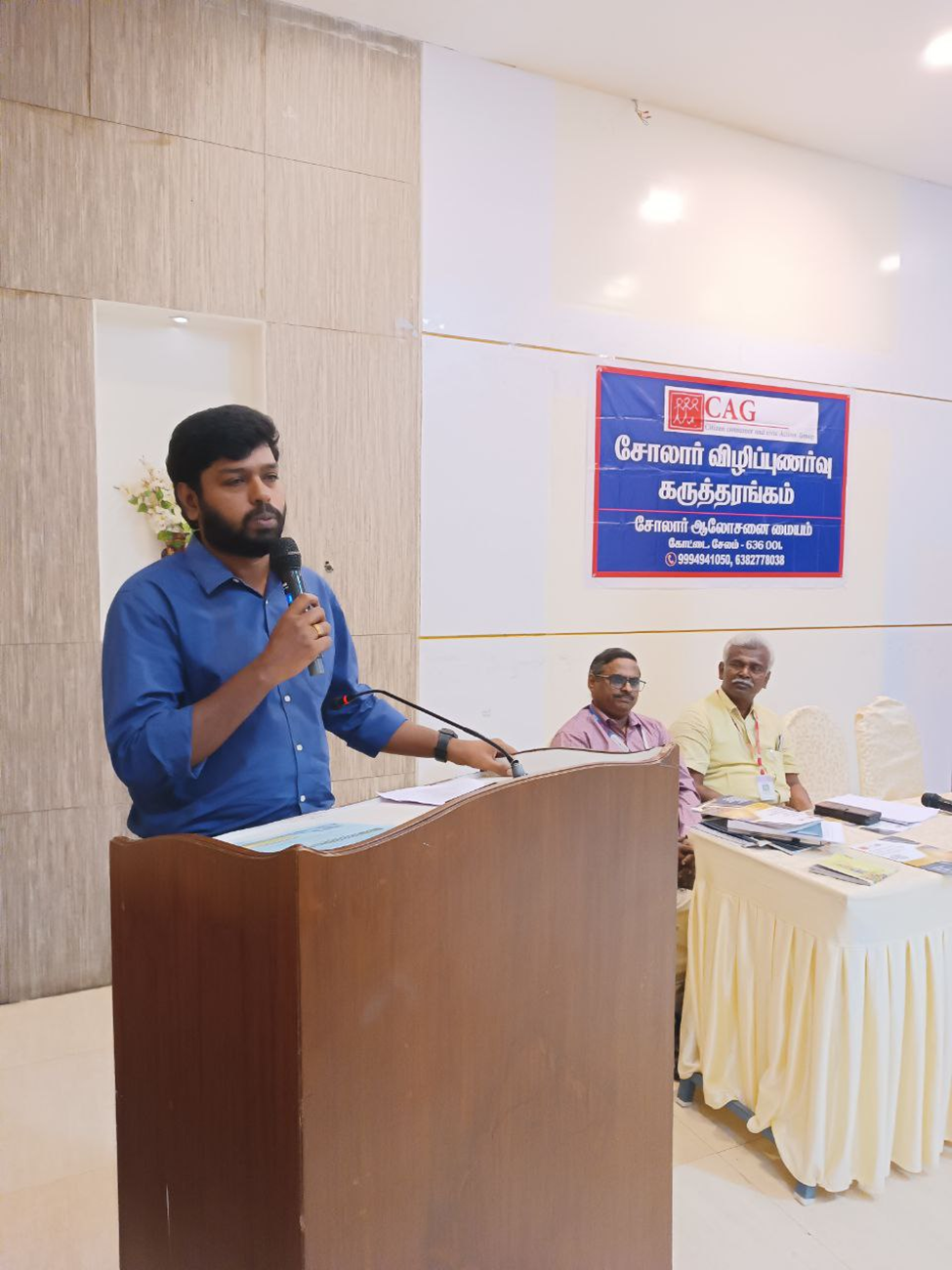
Mr. Bharath Ram, Senior Researcher, explaining about CAG
Mr. Bharath Ram, Senior Researcher, CAG, provided an overview of CAG's initiatives, particularly emphasising the importance of raising awareness about rooftop solar installations. He shared valuable practical insights for consumers, detailing essential considerations before the installation of a rooftop solar system. He further discussed how to effectively select reputable vendors, strategies for navigating potential issues that may arise with these vendors, and useful tips for addressing concerns effectively with DISCOM officials.
Solar Developers Session:
Mr. M. Sivakumar, Solar Expert, Solar Advisory Unit - Salem, moderated the session. Solar developers with varying levels of experience shared their insights on handling on-grid solar installations under the PM Surya Ghar Yojna.
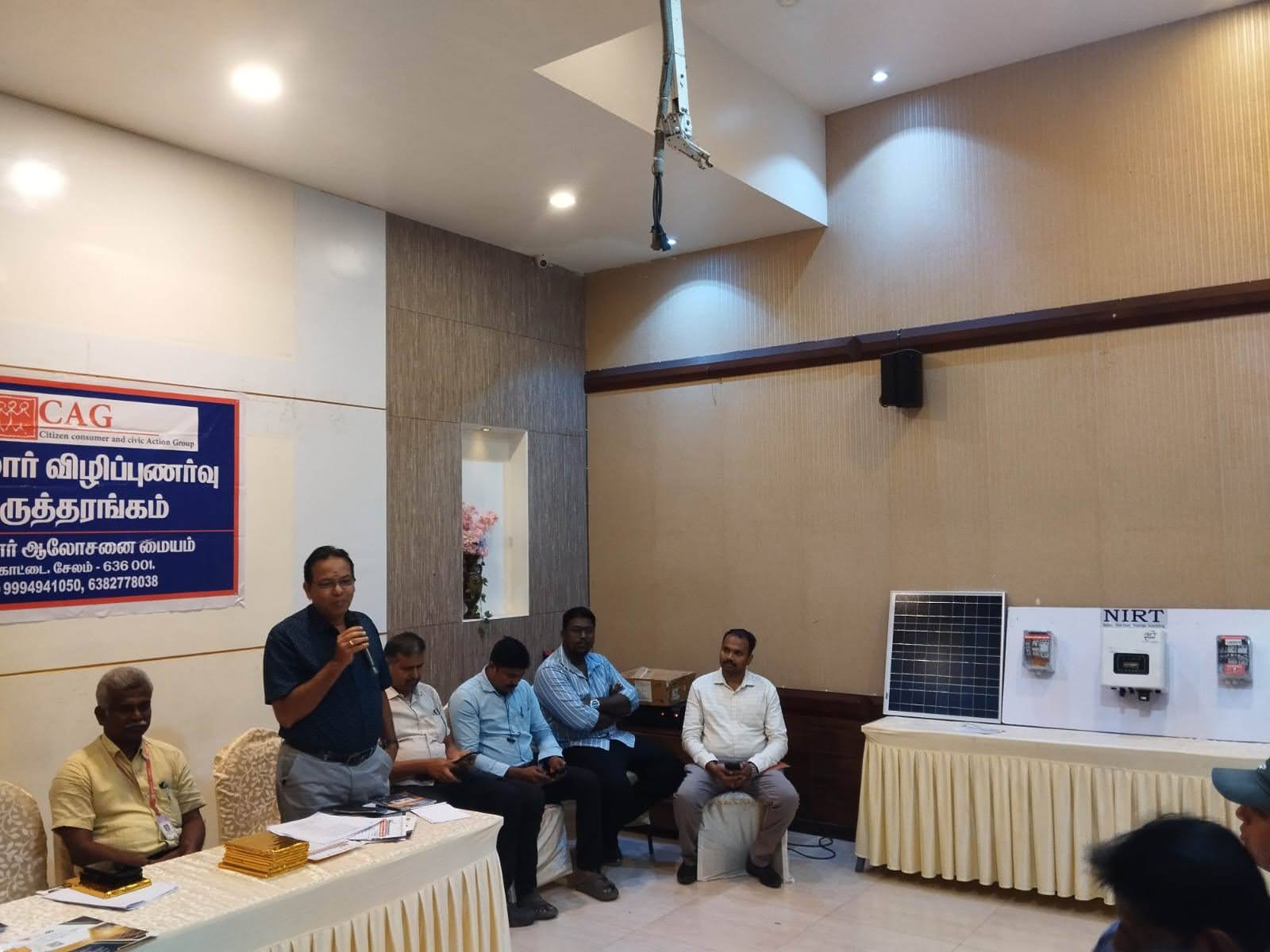
Solar developers explaining the basics of rooftop solar PV systems to the participants.
Participant queries were clarified:
1. Is it possible for a resident with surplus solar energy from a rooftop solar system to share it with another service connection within the same premises? No, each service connection is permitted to have only one solar PV system. Surplus energy generated cannot be shared with other service connections within the same premises or anywhere else.
2. Do solar panels work well in low sunshine, hilly areas? Yes, solar panels can work effectively in low sunshine, hilly areas like Yercaud. However, solar installation should be in a shade-free area, a requirement for installations anywhere in the world.
3. What is the validity period for carry-forward of exported energy from a solar PV system? Surplus energy exported from the solar PV system can be carried forward only until the end of the financial year, beyond which it will lapse.
Role of media in creating awareness in rooftop solar:
Mr. V. Senthilkumar, Times of India, moderated the session. He mentioned that the media community always welcomes government initiatives that benefit citizens. Regarding solar energy, he noted that the PM Surya Ghar Yojna has been promoted by the central government, and information about it has been widely disseminated through digital, print, and social media platforms.
Participants raised questions during the meeting:
1. What are the reasons behind the limited media coverage of the PM Surya Ghar scheme? The limited media coverage of the scheme could stem from several factors, including competing news priorities, lack of perceived urgency or lack of knowledge about the subject for the media house.
2. How can we spark greater media attention on the benefits? To generate more interest from the press regarding this initiative, stakeholders can take proactive measures. Sharing success stories—like financial gains and reduced electricity bills—can draw in media coverage. Additionally, organizing outreach events, such as solar awareness meetings, will help educate and engage those interested in installing rooftop solar.
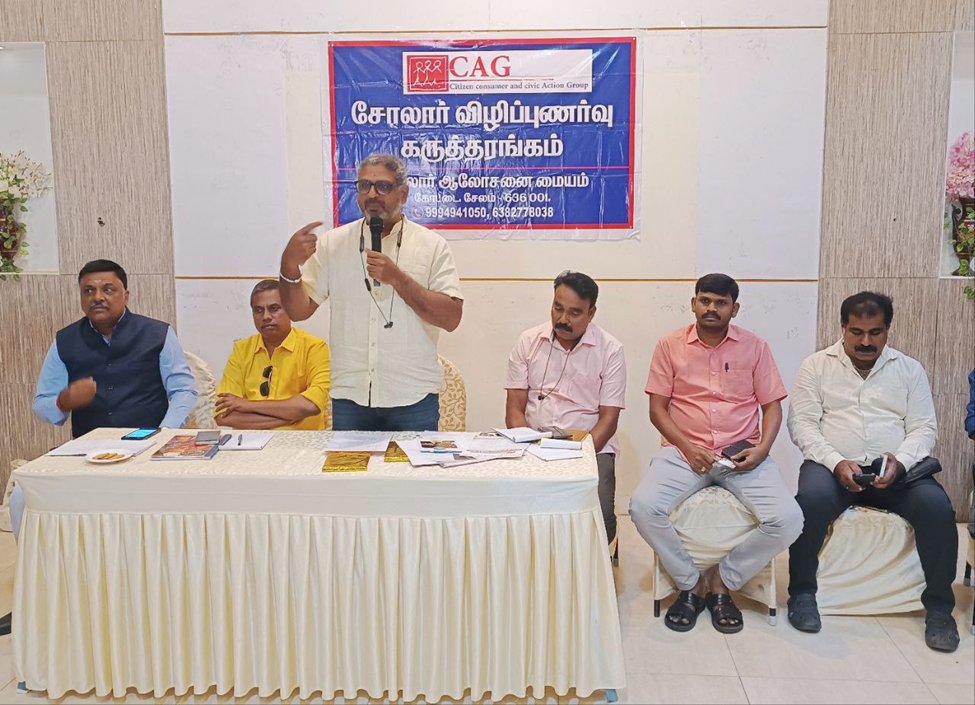
Media representatives, during the meeting
Prosumer experience:
Prosumers shared their experiences in installing rooftop solar systems during the meeting, highlighting both the benefits and challenges they encountered.
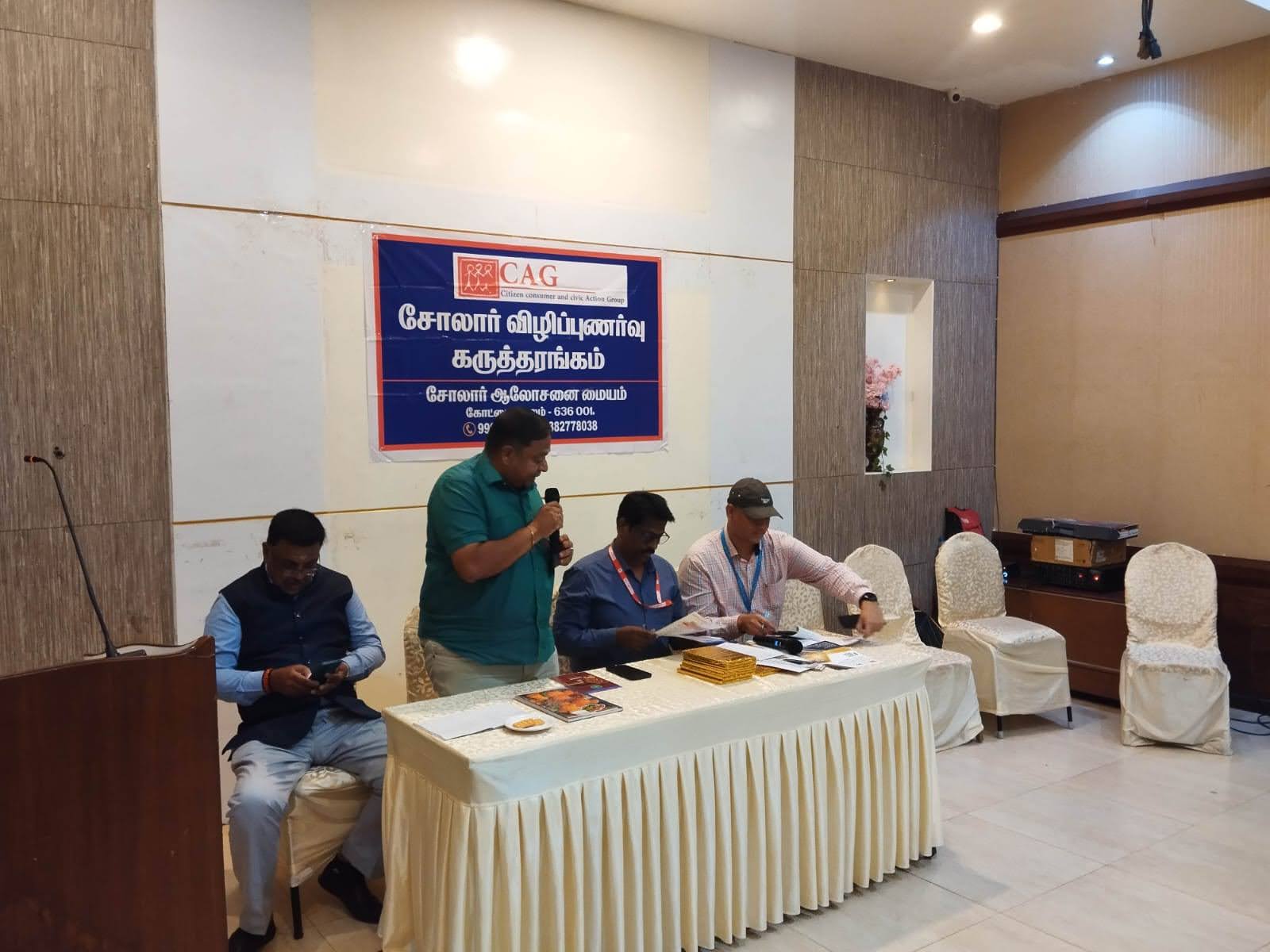
Mr. Kumar, a resident of Salem, shared his positive experience installing a rooftop solar system two years ago. He noted that the installation process was seamless, thanks to the assistance of local solar developers. He emphasised the financial benefits, stating that his electricity bills had significantly reduced.
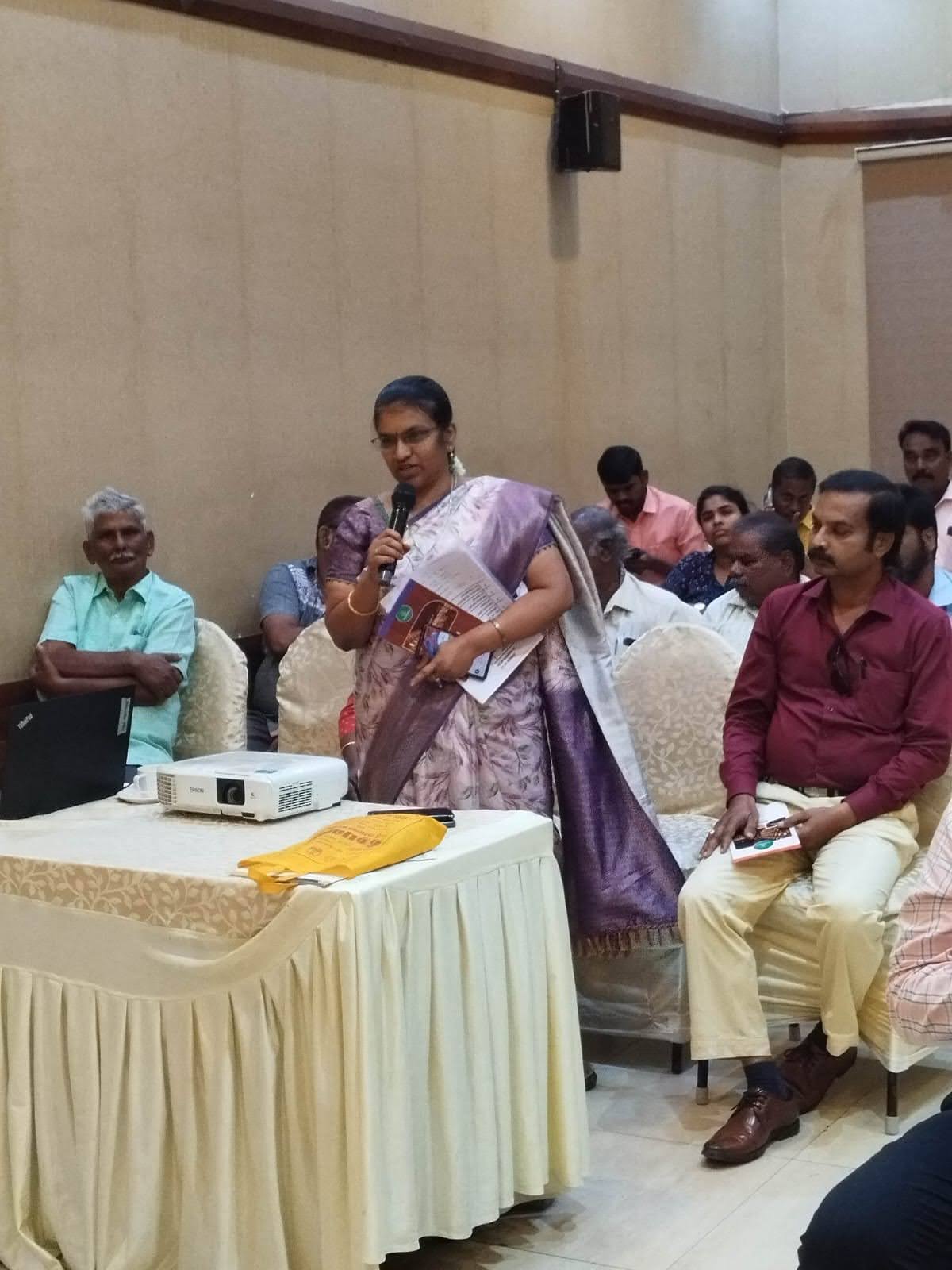
Ms. Lakshmi highlighted her experience with the installation process, describing how she initially felt confused by the technical details. However, with guidance from her chosen vendor, she learned about the components of the solar system and the necessary paperwork. She noted that while her initial investment was substantial, she was already seeing a return through energy savings and the potential to earn from selling excess energy back to the grid. Ms. Lakshmi encouraged others to conduct thorough research on vendors and seek recommendations.
Conclusion:
IEC materials were distributed to consumers, financial institutions, and technical experts. The meeting sparked a productive discussion regarding the adoption of solar energy in Tamil Nadu. Representatives from nationalised banks, solar developers, and consumer organisations had the chance to engage with attendees, answering their questions about financing, maintenance, and grid connectivity.
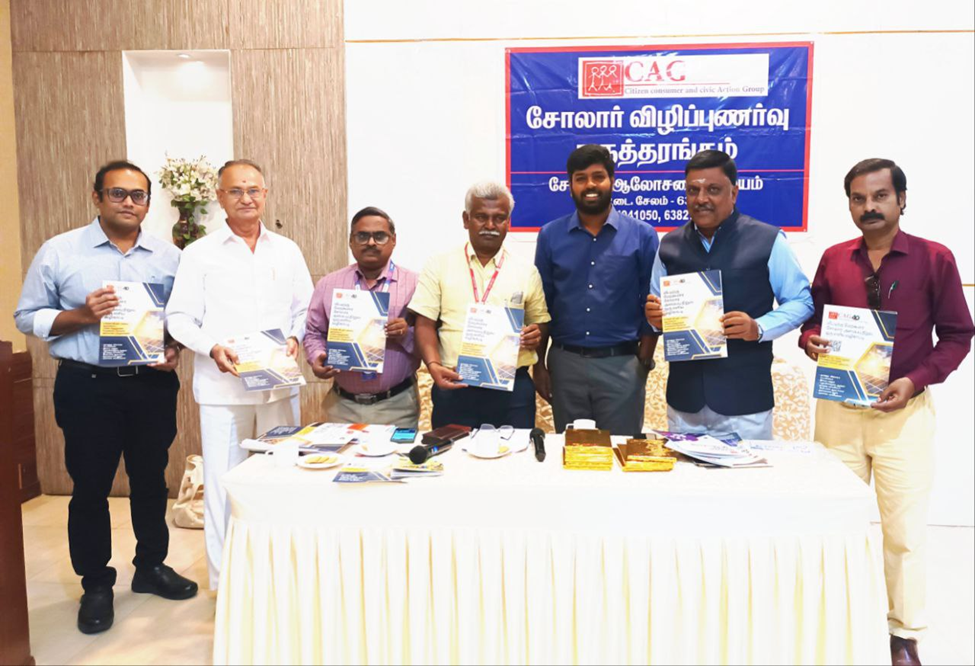
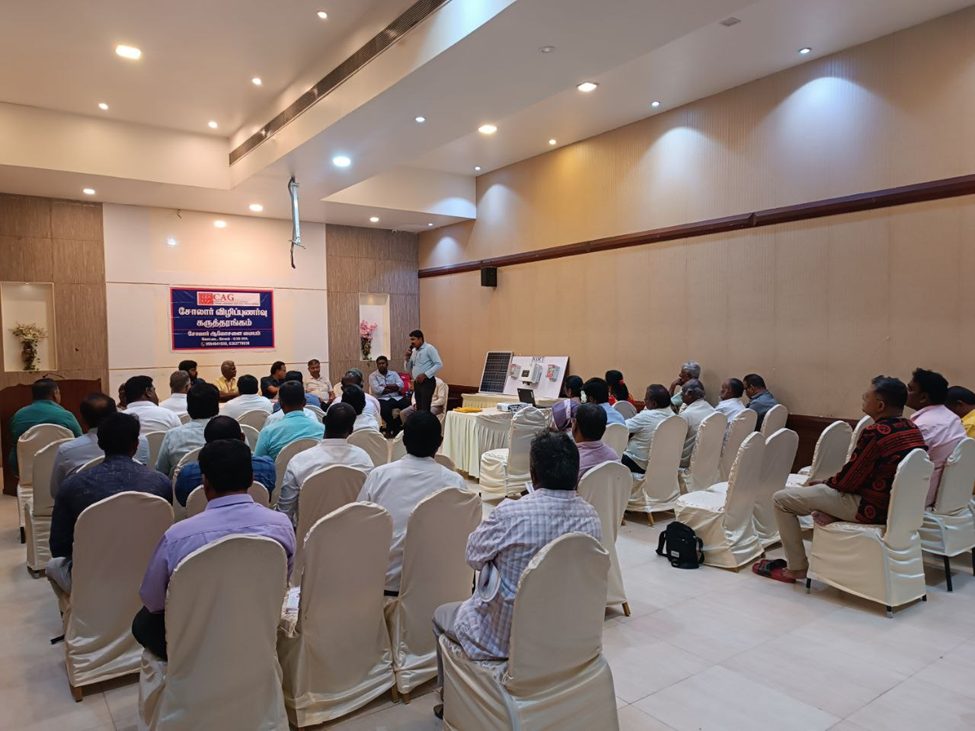
Participants during the meeting